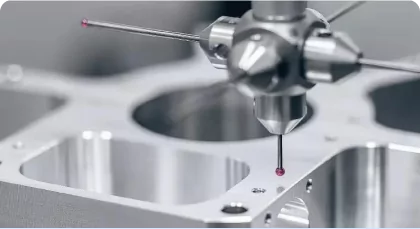Medical and Aerospace Precision Part Machining
Medical and Aerospace Precision Part Machining – Advanced Manufacturing Solutions
In industries where accuracy can determine safety, performance, and innovation, medical and aerospace precision part machining plays a vital role. These sectors demand components manufactured to the highest tolerances, ensuring reliability under extreme conditions. From surgical implants to aerospace turbine components, precision machining is at the heart of technological advancement.
What Is Precision Part Machining?
Precision machining is the process of shaping raw materials—such as stainless steel, titanium, aluminum, and specialty alloys—into highly accurate parts using advanced CNC (Computer Numerical Control) equipment. In the medical and aerospace industries, even the smallest deviation can compromise safety, so tolerances are often measured in microns.
Applications in the Medical Industry
Medical technology relies heavily on precision part machining for medical devices. Common applications include:
Surgical instruments with exact geometries for safe performance
Orthopedic implants such as knee and hip replacements
Dental implants requiring biocompatible and corrosion-resistant materials
Diagnostic equipment housings and components
The goal is to ensure biocompatibility, sterility, and dimensional consistency in every machined part.
Applications in the Aerospace Industry
The aerospace sector demands parts that withstand high temperatures, pressure, and vibration. Aerospace precision part machining covers:
Engine components, turbine blades, and housings
Aircraft fasteners and structural parts
Avionics connectors and enclosures
Lightweight components for fuel efficiency
These components require not only precision but also strict compliance with international aerospace standards.
Why Precision Matters in These Industries
Safety and Reliability – A small defect in a medical implant or an aerospace engine part could cause catastrophic failure.
Regulatory Compliance – Both sectors require adherence to rigorous standards such as ISO 13485 for medical devices and AS9100 for aerospace manufacturing.
Material Expertise – Advanced alloys, titanium, and biocompatible plastics demand specialized machining knowledge.
Innovation Support – Custom prototypes and small-batch production enable continuous research and development.
Key Capabilities in Medical and Aerospace Precision Machining
A trusted medical and aerospace precision machining manufacturer provides:
5-axis CNC machining for complex geometries
Micro machining for miniature components
Surface finishing and polishing for biocompatibility and aerodynamics
CMM inspection and metrology for strict dimensional accuracy
Cleanroom packaging for medical-grade components
Frequently Asked Questions
Q1: What tolerances can be achieved in medical and aerospace machining?
Depending on the part and material, tolerances can be as tight as ±0.002 mm.
Q2: Are materials like titanium and superalloys commonly used?
Yes, titanium, Inconel, stainless steel, and high-performance plastics are widely used due to their strength and corrosion resistance.
Q3: Can a manufacturer provide both prototyping and mass production?
Yes, many suppliers specialize in both rapid prototyping for design validation and full-scale production for commercial use.
Q4: How is quality assured?
Through advanced inspection systems, ISO-certified processes, and full traceability documentation to meet regulatory requirements.
Medical and aerospace precision part machining is more than just manufacturing—it is about enabling progress, safety, and innovation in two of the most demanding industries in the world. By choosing a reliable machining partner, companies can ensure their products meet the highest global standards and deliver exceptional performance.








